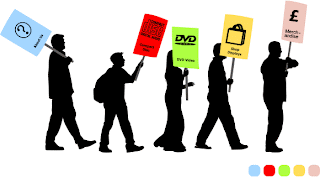- Investigate the economic conditions surrounding your small business activity such as industry trends and competition.
- Prepare a detailed business plan so you will not lose sight of your goals and objectives.
- Secure sufficient financial resources for future development or expansion.
- Contact professional advisors such as an accountant, banker and/or lawyer to provide expert information about your business.
- Network with other small businesspeople; establish a support group. Remember, you are not alone.
- Attend workshops, trade shows, and seminars to keep up-to-date on changes in the industry.
- Adopt a team approach; work with others in pursuing common goals.
- Understand the skills and qualities you bring to your business.
- Develop a situation analysis of your company including its strengths, weaknesses, opportunities and threats to assist in the development of a strategic plan for the future of the business.
In general, a business manager is responsible for running the business day-to-day. Whether, a managing director in a medium-sized company or a business unit director in a large corporate organization, this general management role is crucial to hold the business together, and to lead the changes which will ensure future success.
Roles of a Business Development Executive
- Business development executives are charged with creating new customers for a company and growing present customer purchases. In companies of all sizes, business development is an ongoing activity. The business development executive is involved in all aspects of sales and needs to form relationships easily, possessing above average communication skills. A successful business development executive depends on cooperation and achievement of company employees to achieve goals toward progressively increasing company sales.
Superb Communication Skills
- A business development executive needs to be clear in what he or she wants to convey to the company's audience through the use of simple and straightforward language. Confidence in use of body language matching the circumstances and the energy level to match rounds out demonstration of superb communication skills.
Develop Hierarchy of Industry Customers and Prospects
- Business development executives need to evaluate current customers--industry type, number of employees, association memberships--and all the common characteristics of customers that can be identified. From this analysis, a business development executive identifies prospective customers that complement current customer parameters; and formulates plans on how to best interact with prospects matching current customers characteristics.
Coordinate Business Development Activities
- In conjunction with the marketing executive, a business development executive should provide leadership in formulating the advertising, branding, direct marketing, sponsorship, public relations, sales promotion and online marketing functions of a company. Coordinating these functions successfully toward maintaining the current customer base, and acquiring new customers closely follows the analysis of customers and prospective customers to best communicate the business' synergies of the company.
Customer and Prospect Interaction
- Since acquiring and retaining business is often a function of personal relationships, the business development executive should interact with customers and prospects on a personal level via the telephone, trade shows and other interpersonal business communication media.
Prepare and Communicate Information to Senior Management
- Business development executives need to keep senior management aware of retention of customers and acquisition of new customer efforts. Weekly meetings to cover standard reports showing numbers of current customers and their details along with information on bringing prospects into the customer category help senior management make timely business decisions.
Roles of a Sales Professional
- listening to customer requirements and presenting appropriately to make a sale;
- maintaining and developing relationships with existing customers in person and via telephone calls and emails;
- cold calling to arrange meetings with potential customers to prospect for new business;
- responding to incoming email and phone enquiries;
- acting as a contact between a company and its existing and potential markets;
- negotiating the terms of an agreement and closing sales;
- gathering market and customer information;
- representing the organisation at trade exhibitions, events and demonstrations;
- negotiating on price, costs, delivery and specifications with buyers and managers;
- challenging any objections with a view to getting the customer to buy;
- advising on forthcoming product developments and discussing special promotions;
- creating detailed proposal documents, often as part of a formal bidding process that is largely dictated by the prospective customer;
- liaising with suppliers to check the progress of existing orders;
- checking quantities of goods on display and in stock;
- recording sales and order information and sending copies to the sales office, or entering into a computer system;
- reviewing your own sales performance, aiming to meet or exceed targets;
- gaining a clear understanding of customers' businesses and requirements;
- making accurate, rapid cost calculations and providing customers with quotations;
- feeding future buying trends back to employers;
- attending team meeting and sharing best practice with colleagues.
